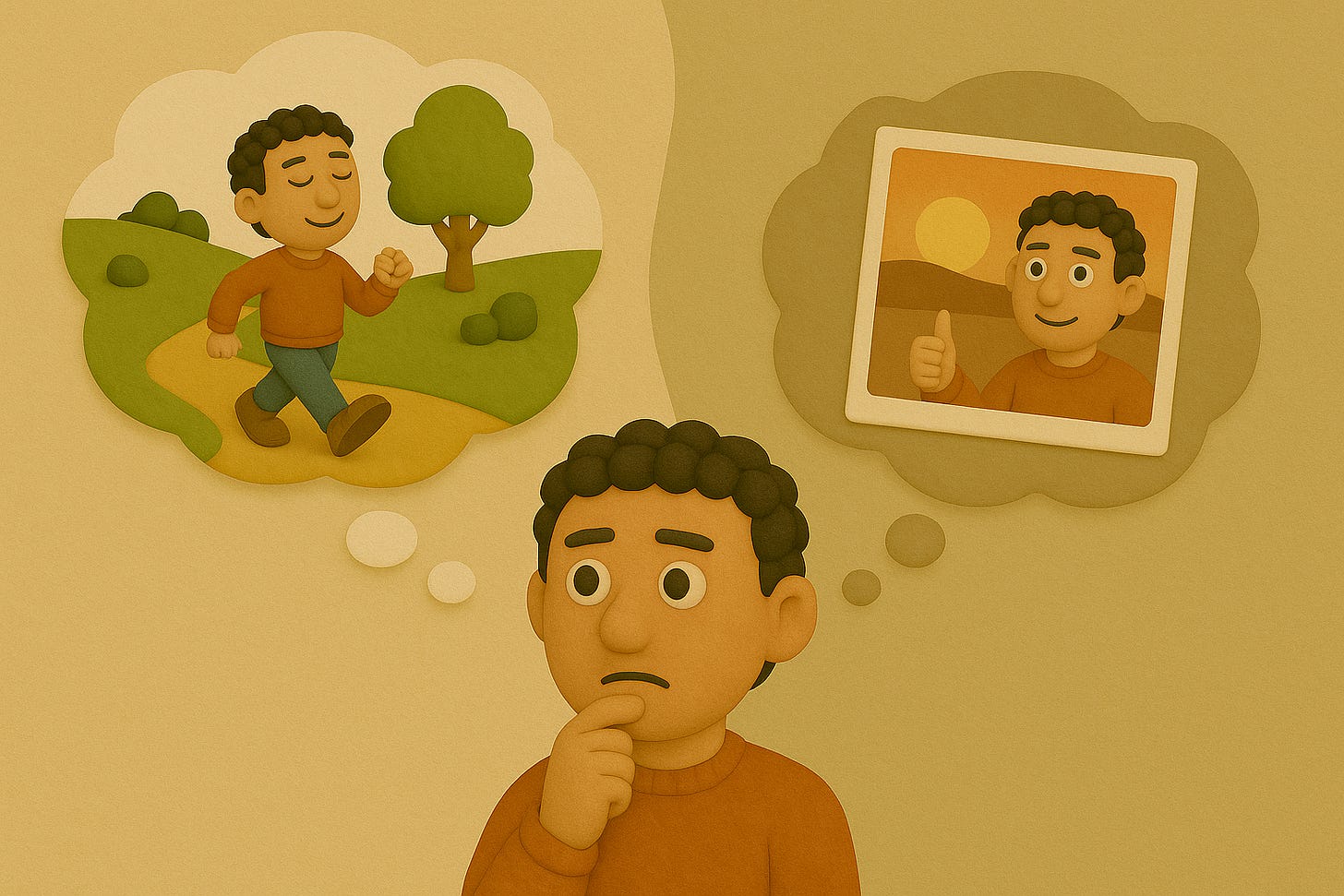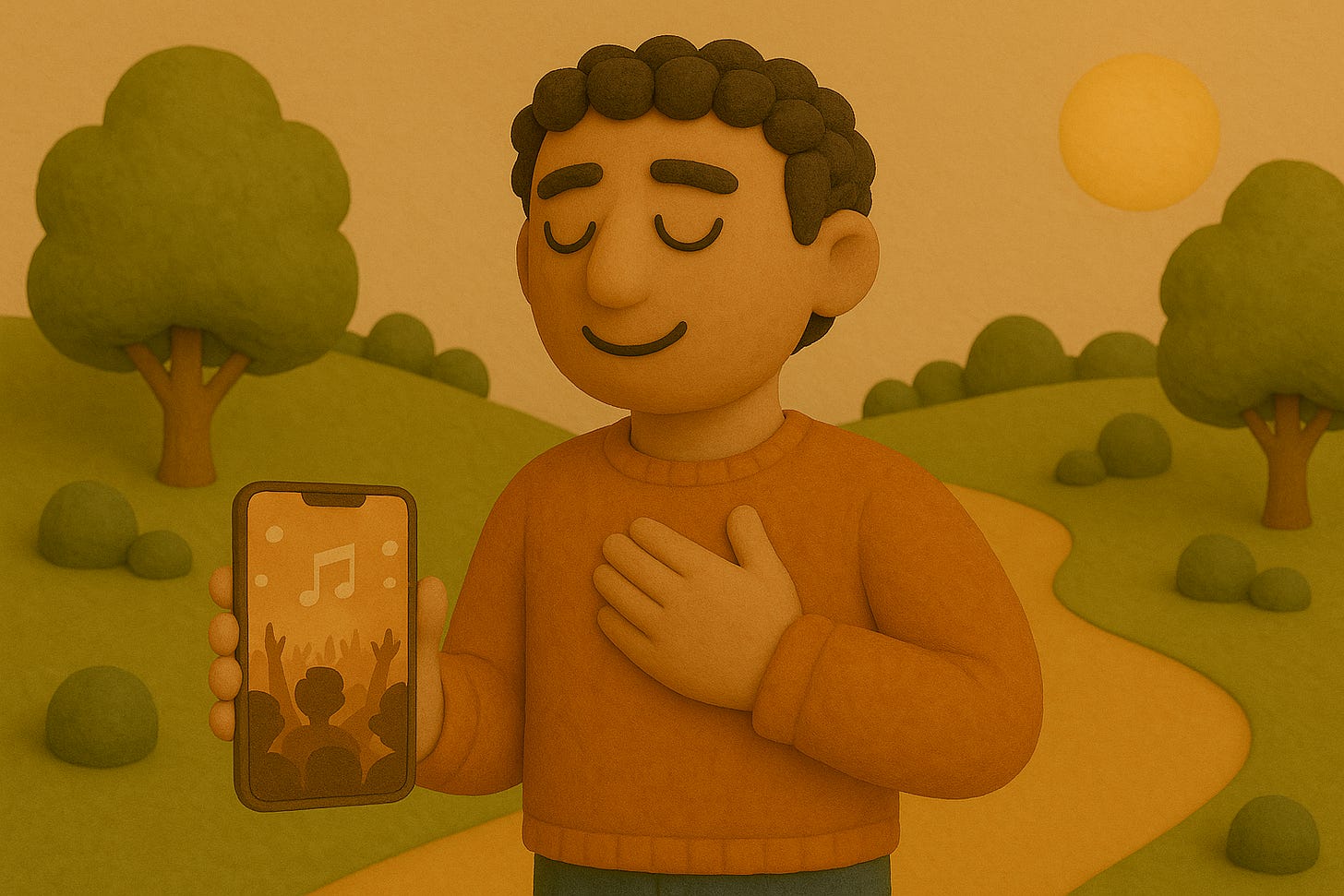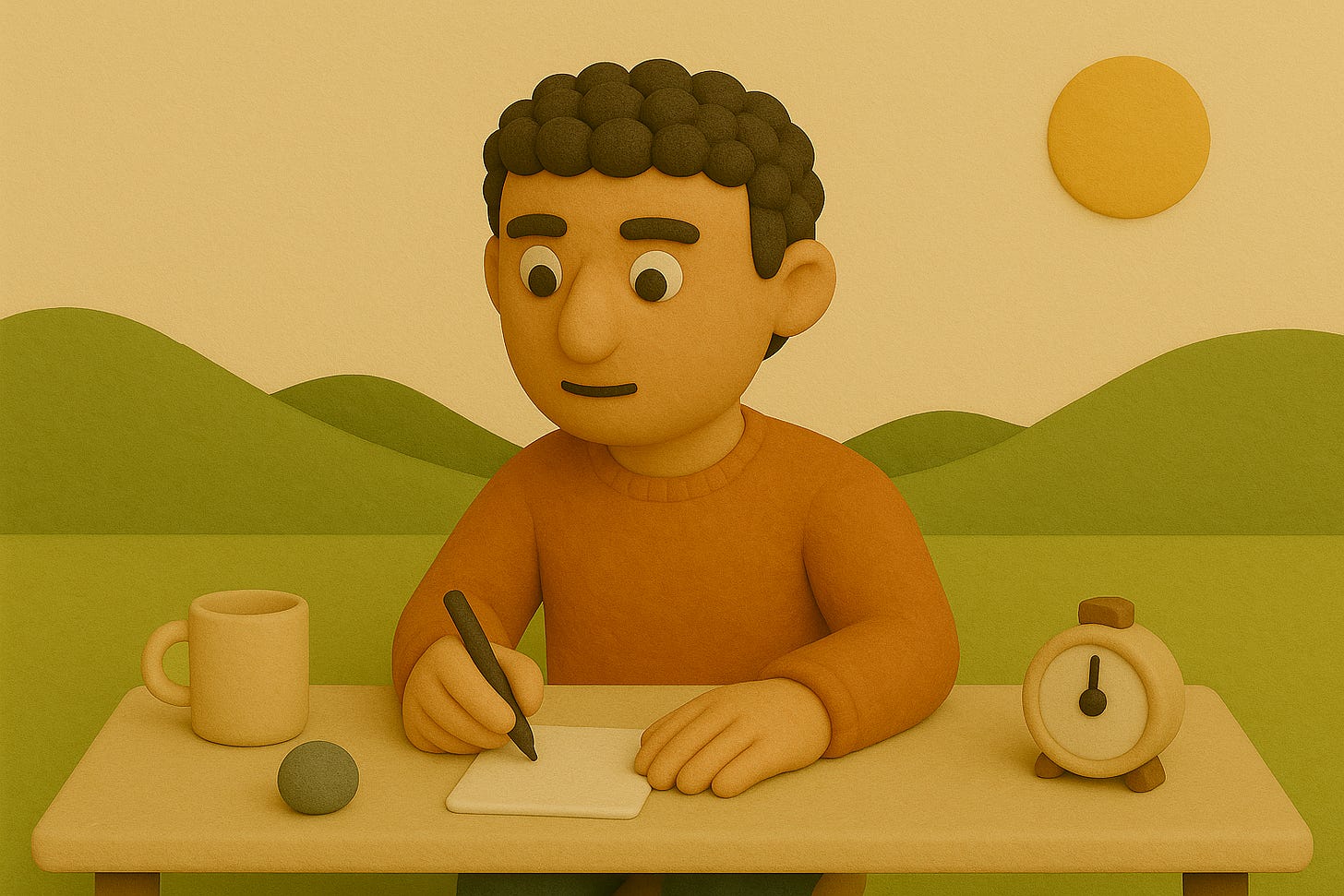Why "Live In The Moment" Is Overrated
The Complexity of Happiness: Experiencing vs. Remembering
In today's fast-paced world, the concept of happiness and living in the moment has become a hot topic.
It's often frowned upon when people, for example, take videos at concerts instead of simply enjoying the music, or when they structure their day not for maximum enjoyment in the moment, but for some better future outcome.
However, the idea of living in the moment is not as black and white as it may seem. In fact, this philosophy can sometimes do more harm than good. Today, I want to explore why this is the case and delve into the reasons behind it.
Here is what we will get into:
Two selves, two scorecards: moment-to-moment feelings vs the story you will remember later
Endings matter more than you think, and time matters less than you think
The role of photos and videos
“Live in the moment” gets abused to justify instant gratification
The fix is not to ditch presence, but to design for both selves on purpose
Two selves, two scorecards
There's an amazing book by Daniel Kahneman called "Thinking, Fast and Slow," which was one of the first psychology books I read. There is a really profound concept in the book that has stuck with me.
Kahneman, a Nobel laureate in economics, introduces the distinction between the experiencing self and the remembering self. This distinction is crucial when we talk about happiness.
The Experiencing Self: This is the part of us that lives in the present moment. It feels the immediate pleasures and pains, the joys and miserys of the here and now.
The Remembering Self: This is the part of us that keeps track of our life story. It evaluates the past, makes decisions for the future, and is responsible for how we remember our experiences.
Often, when we think about happiness, we confuse the experience of happiness with the memory of happiness. Being happy in life (feeling joy and pleasure moment to moment) is very different from being satisfied with life, which is more about how we remember and evaluate our past experiences.
Endings matter more than you think
To illustrate this, let’s look at a fascinating study involving colonoscopies. In this study, two patients—let’s call them Patient A and Patient B—underwent the procedure.
Objectively, Patient B experienced more total pain; the procedure was longer and more intense than Patient A’s.
However, Patient A’s procedure, though shorter and less painful overall, ended at peak pain. Patient B’s procedure, despite being longer and more painful, ended with low pain.
The interesting finding? Patient A remembered the experience as worse, even though the objective experience was less painful. This suggests that extending a procedure with low pain at the end can make the remembered experience better, even if it adds real pain.
This phenomenon is not limited to medical procedures; it’s something we encounter in various aspects of life.
The Vacation Example
Consider a weekend trip that ends on a high note with no major low points. Compare this to a two-week vacation that has higher highs but ends with a bad experience.
Even though the longer vacation had more joyful moments overall, it will be remembered as less joyful because of the negative ending. This shows how the remembering self evaluates experiences based on their conclusion rather than their duration or intensity.
Here’s a thought experiment:
Imagine you could design your dream vacation with no constraints on time or money. But at the end, all your photos and memories of the trip would be erased.
Would you still choose the same vacation?
This thought experiment highlights the interplay between the experiencing self and the remembering self. It’s a powerful way to understand how we derive happiness from our experiences and memories.
The Role of Photos and Videos in Memory
In today's digital age, we often hear criticism about people not being present because they're too busy taking photos or videos.
However, I believe there's more to it.
Our remembering self often perceives experiences more vividly than our experiencing self.
For instance, I don't take videos of everything all of the time, but I do find myself looking back at videos of experiences I had almost forgotten. The revival of those memories brings me a lot of joy.
This suggests that capturing moments through photos and videos can enhance our long-term satisfaction and happiness.
The Misuse of "Living in the Moment"
The philosophy of living in the moment can sometimes be misused to justify instant gratification or laziness, which can quietly undermine long-term outcomes and life satisfaction.
Of course, it’s also not ideal to sacrifice the present entirely for a greater future. The key is to find a balance between enjoying the present and planning for the future.
Planning, discipline, and future trade-offs are actually essential for allowing moment-to-moment happiness and joy in the future. This requires consistent cycles of being disciplined and not taking everything in the present for granted.
Elite performers, whether musicians or athletes, live in the moment during their performances, but they’ve also put in countless hours of practice—often not enjoyable—to reach that level of skill and passion.
I’ve written a post on this exact topic, and why you should not blindly follow your passion.
The Value of Hard Work
Doing the hard things now can lead to real contentment and the ability to truly live in the moment.
Being present alone doesn’t fix anything; you can be fully present while doom-scrolling on Instagram. Mindfulness needs to be directed toward activities worth pursuing. Don’t just pursue presence; pursue present-worthy activities.
From my experience, hard work often leads to some of the most enjoyable moments in life.
Nothing worth pursuing is easy, and the satisfaction that comes from achieving something through effort is unparalleled.
A good frame of mind I like to ask myself is this:
If I won’t remember this in the future, is it still worth doing?
Design for both selves, on purpose
Think of happiness as two metrics you can improve with different levers:
Experiential Happiness: This is the moment-to-moment feelings of joy and pleasure.
Remembering Happiness: This is the life evaluation and satisfaction we feel when we look back on our lives.
Interestingly, these two types of happiness correlate very little.
People who derive a lot of moment-to-moment joy might not be as satisfied with their lives, and vice versa. This isn't to say that one is better than the other, but it's important to recognize the distinction.
If you only optimize for today’s vibe, you risk future regret. If you only optimize for tomorrow’s story, you risk present misery. Good lives take both seriously.
The bottom line
In conclusion, the main takeaway is this: If you love your life as it is, don't change anything just for the sake of changing it. No one knows how to live your life better than you do.
There isn't a right or wrong way to approach happiness. It's about finding a balance between the experiencing self and the remembering self.
And whenever you hear “just be present,” quietly translate it to something more useful:
Be present with what is worth being present for.
I highly encourage everyone to read Daniel Kahneman's Thinking, Fast and Slow. It's an amazing exploration of how our minds work and how we perceive happiness.
Until next time, take care and enjoy the journey!
💡 Question: What are your personal insights and learnings regarding happiness?
Resources:






To me living in the moment is documenting the day/event with photos and videos - of the people you are with, the things you did. But when you miss what is going on in that moment, like at concert or event, and filming every second, those moments have been lost. No amount of "shows" on your timeline will ever make up for that.
This piece made me think about it. I don't think many of us think of happiness in this way. This was really good and made me naturally think both are important. Working that week grind for my overall goals. But also appreciating moments on my time off.